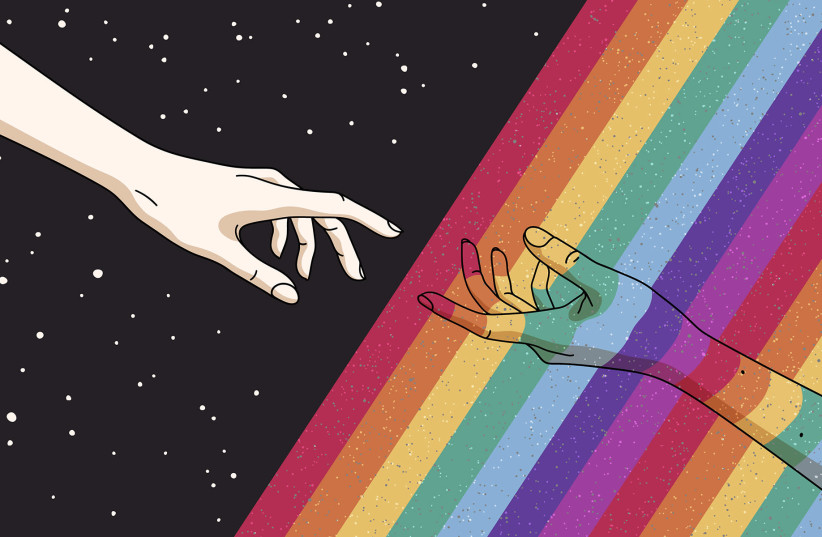The Jewish LGBTQ nonprofit Jewish Queer Youth (JQY) has received a $1 million USD donation from Canadian real estate developer Paul Austin and his partner Dalip Girdhar, the organization announced on Monday.
The New York City-based group said the donation, the largest it has ever received since its official inception as a nonprofit in 2012, will enable it to expand access to social services for Jewish LGBTQ youth across the United States.
JQY added that it will rename its "warmline" phone service and National Drop-in Center program the "JQY Paul Austin and Dalip Girdhar (the P. Austin Family Foundation) Drop-in Center and Hopeline."
The donors, Austin and Girdhar, are the CEO of the Salpram Group and an information technology employee at TD Bank, respectively. Austin said in a statement that he and Girdhar were glad the funds were going to a good cause:
"It’s an honor and a privilege to be able to make a gift like this, and we know it will be used well. We wanted it to be a transformative gift, and we hope it will be," Austin said.

JQY said the money would go toward expanding its Drop-in Center initiative, which the organization described as a "comprehensive in-person clinical program," from New York to Orthodox communities in New Jersey, South Florida, Chicago and Baltimore, as well as toward hiring additional staff for its hotline.
JQY Executive Director Rachael Fried expressed gratitude on behalf of the organization, saying, "We are deeply grateful to Paul and Dalip. This incredible gift will change the future for Jewish queer youth, allowing us to bring local support to the teens who need it most. Over the next five years, we will be creating a national safety net which will serve as a life-saving resource for years to come."
JQY paraphrased Fried as citing "various surveys" to highlight what it sees as increased demand for its services, saying such studies showed that "between six and 20 percent of all American youth identify as LGBTQ. If just six percent of the 110,000 students in New York City yeshivas are LGBTQ, then almost 7,000 people in New York City alone could find support from JQY."
Fried added that JQY has successfully reached over 10,000 LGBTQ Jewish Youth in the last two decades, the nonprofit added, adding that while "[t]here are certainly tens of thousands of LGBTQ Jewish youths worldwide," and acceptance toward LGBTQ identity is growing, this tolerance is not typical within the Orthodox communities that the nonprofit serves.
"Most youth served by JQY are still closeted and fear coming out to their families or communities, which makes them uniquely vulnerable. Drop-in Center intakes have shown that over 70 percent of JQY participants have reported considering suicide in the past," the organization said.
JQY's new Drop-in Centers will begin holding monthly events related to games, artwork, kosher meals and a Jewish queer library, and will have social workers present for those who want one-on-one counseling.
Mordechai Levovitz, JQY’s founder and Clinical Director emphasized that the centers aim to be a warm, welcoming, safe environment for LGBTQ Jewish youth. "Gender and orientation do not have to be a catastrophe," he said. "In healthy and positive settings they can be things about ourselves that we learn to explore, express, engage with, and even love."
